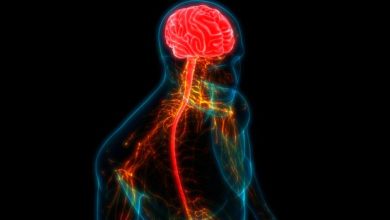13 Warning Signs of High Blood Sugar and 9 Ways to Take Control of Your Health
High blood sugar—also known as hyperglycemia—is a silent warning sign that can point to Type 2 diabetes, a chronic condition that affects millions of people worldwide. Alarmingly, 1 in 3 individuals with diabetes are unaware they have it, often missing the subtle symptoms until complications arise.
Left unmanaged, high blood sugar can lead to serious health issues like heart disease, nerve damage, and vision loss. The good news? With early detection and lifestyle changes, you can take control of your health and significantly lower your risk.
13 Warning Signs of High Blood Sugar (Type 2 Diabetes)
Type 2 diabetes occurs when your body either doesn’t produce enough insulin or can’t effectively use it. As a result, sugar builds up in your bloodstream. Here are the most common early symptoms you shouldn’t ignore:
1. Frequent Urination (Polyuria)
If you’re visiting the bathroom more often, especially at night, your kidneys may be working overtime to flush out excess sugar.
2. Constant Thirst (Polydipsia)
More urination means more fluid loss, leading to excessive thirst. This cycle can continue unless blood sugar levels are stabilized.
3. Increased Hunger (Polyphagia)
Despite eating, your body might not be getting the energy it needs due to poor glucose absorption, leading to cravings and frequent hunger.
4. Dry Mouth and Gum Issues
Lack of saliva can make your mouth feel dry, promote bacterial growth, and increase the risk of oral infections or gum disease.
5. Unexplained Weight Loss or Gain
Rapid weight loss could mean your body is breaking down muscle for energy. On the flip side, overeating sugary foods can lead to weight gain.
6. Fatigue and Irritability
Low cellular glucose leads to low energy. Poor sleep from nighttime urination only worsens fatigue, potentially impacting your mood.
7. Blurred Vision
High blood sugar can alter fluid levels in your eyes, affecting the lenses and causing temporary or even permanent vision changes.
8. Headaches
Persistent or unexplained headaches may be an early indicator of fluctuating or elevated blood sugar levels.
9. Slow-Healing Cuts and Bruises
High glucose can impair circulation and immune response, slowing the body’s ability to heal wounds or fight off infection.
10. Frequent Yeast or Fungal Infections
Excess sugar fuels bacteria and fungi, increasing susceptibility—particularly to vaginal infections in women.
11. Tingling or Numbness in Hands and Feet
Nerve damage (diabetic neuropathy) can develop early. This symptom often begins with tingling or burning sensations.
12. Skin Changes
Dark, velvety patches on the neck, armpits, or groin (acanthosis nigricans) can signal insulin resistance. Other skin irritations may follow.
13. Sexual Health Changes
High blood sugar can impair blood flow and nerve function, leading to erectile dysfunction in men and vaginal dryness in women.
💡 If you recognize any of these signs, consult your doctor. A simple blood test can determine whether you have diabetes or are at risk.
🧪 Diagnosing Diabetes: What Your Numbers Mean
- Fasting Blood Glucose: Levels ≥126 mg/dL (on two separate occasions) typically indicate diabetes.
- Prediabetes: Levels between 100–125 mg/dL suggest elevated risk and warrant proactive lifestyle changes.
✅ 9 Evidence-Based Ways to Prevent Type 2 Diabetes
Even if you’ve been told you have prediabetes, it’s not too late. Lifestyle changes can not only delay but prevent diabetes altogether.
1. Get Moving
Regular activity improves insulin sensitivity and reduces fat. Aim for 150 minutes of moderate exercise weekly. Walking, dancing, and cycling count.
2. Lose Just a Little Weight
Even a 7% weight loss can reduce diabetes risk by up to 58%, according to the American Diabetes Association.
3. Quit Smoking
Smoking increases insulin resistance and inflammation. Quitting can reduce both the risk and severity of diabetes complications.
4. Improve Sleep Quality
Short sleep durations (under 6 hours) have been linked to higher diabetes risk. Prioritize consistent sleep routines and limit screen time before bed.
5. Build a Support Network
Social support can significantly increase your chances of sticking with new habits. Join fitness groups or online wellness communities for accountability.
6. Eat a Balanced, Fiber-Rich Diet
- Focus on non-starchy vegetables like broccoli, spinach, and peppers.
- Choose whole grains over refined carbs.
- Incorporate fruits in moderation, using the glycemic index as a guide.
📘 For more guidance, check out practical nutrition programs or diabetes-friendly cookbooks that offer meal plans and easy recipes.
7. Manage Stress Levels
Chronic stress affects hormone levels and increases blood sugar. Try meditation, yoga, or deep breathing exercises for daily relief.
8. Stay on Top of Checkups
Visit your healthcare provider every 3–6 months for routine monitoring, especially if you’ve been diagnosed with prediabetes.
9. Commit to Consistency
Progress is never perfect. The key is to stay committed, make gradual improvements, and get back on track when life throws you off course.
Final Thoughts
Type 2 diabetes doesn’t appear overnight—and neither does prevention. Recognizing the early signs of high blood sugar and adopting a healthier lifestyle today can dramatically change your future.
By staying informed, making smart choices, and working with your healthcare provider, you can take full control of your health and live well—without letting diabetes dictate your life..












